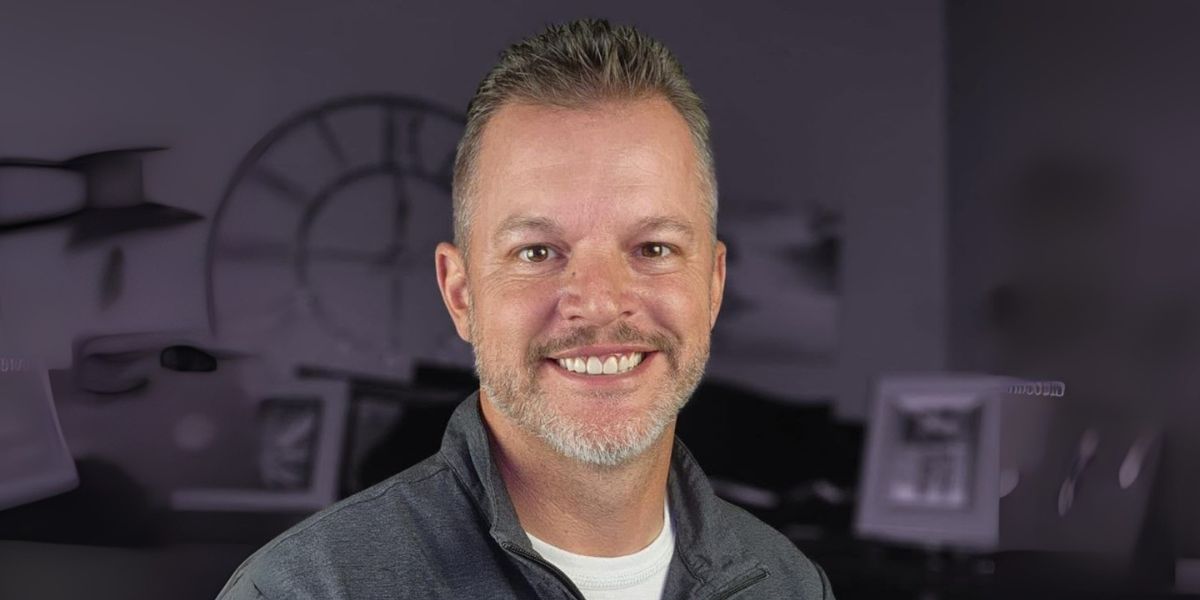By: Elowen Gray
At first glance, Tracy doesn’t fit the typical image of someone struggling with addiction. He’s articulate, composed, and by many standards, successful. He’s a father, a husband, a public speaker, and now an author. But for years, he was also grappling with addiction: to drugs, to alcohol, to achievement, to anything that would keep him from confronting his own pain.
“I was the guy you’d look at and say, ‘He’s doing great,’” Tracy says. “But internally, I was slowly falling apart.”
His newly published book isn’t a conventional addiction memoir, nor is it a how-to guide for recovery. It’s a reflection aimed at the person who looks like they have it all together but knows, deep down, they’re struggling.
“I didn’t write this book for the person living behind a dumpster or the one drinking from a paper bag,” Tracy says. “I wrote it for the professional who goes to work every day, shows up for their family, but privately deals with alcoholism, eating disorders—anything to cope with the noise.”
The message is clear: addiction doesn’t always appear as devastation. Sometimes, it can look like a promotion, a luxury vehicle, or a carefully curated social media profile.
After nearly five years of sobriety, Tracy is sharing his story not to promote his book, but to spark a wider conversation—one that recognizes the nuanced and often invisible ways addiction manifests, especially among high-functioning individuals.
The Hidden Epidemic in High Places
Tracy’s descent into addiction was gradual, masked by the outward signs of conventional success. He built a life that appeared enviable from the outside—“wife, kids, the church routine, the house, the job”—but internally, he was using substances to manage everything from stress to childhood trauma.
“I was numbing instead of healing,” he says. “And the more I succeeded, the harder it became to admit that I was actually suffering.”
What’s significant about his perspective is how it reframes addiction as a spectrum rather than a binary. “People assume if you’re not homeless or overdosing, you’re not addicted. That’s simply not true,” he insists. “Addiction is any repetitive behavior used to avoid emotional pain. That could be a substance, but it could just as easily be compulsive shopping, scrolling Instagram, or an obsessive work ethic.”
From Recovery to Redirection
Tracy’s book aims to reach those whose addictions may go unnoticed. He describes it as an “accessible read”—simple enough for treatment centers, yet layered enough to challenge readers at any stage of self-awareness.
He has already started speaking across the country, often at rehabilitation centers and corporate events, with responses that have been deeply personal.
“Most recently, I spoke at Boeing,” he recalls. “These were executives, engineers, people you wouldn’t typically associate with addiction. And yet, the Q&A lasted three times longer than scheduled. People started asking themselves questions they hadn’t considered in years.”
The heart of his message is deceptively simple: Are you happy with your life today?
“It’s not about whether you’ve ‘arrived’—financially, professionally, or socially,” Tracy says. “It’s about whether you’re truly at peace. Most people aren’t. But they don’t know how to address the real problem because it doesn’t look like a crisis. It looks like a routine.”
Beyond the Substances: A Call for Self-Honesty
One of Tracy’s key contributions to the addiction conversation is the shift from focusing solely on substances to identifying the behaviors and mindsets that perpetuate avoidance.
“I don’t use anymore, but I still have to watch myself,” he admits. “Addiction doesn’t disappear. It transforms. It can become over-exercising, overworking, and isolating. The compulsion is the same—the target just changes.”
He emphasizes that the goal isn’t perfection, but presence. “I ask myself daily, ‘Am I proud of how I lived today?’ Not in a performance sense—but in terms of honesty, connection, and joy. Because that’s what we’re all really seeking, whether we realize it or not.”
Tracy also explores the emotional roots of addiction, often tied to unresolved trauma, grief, or abandonment. “We run from the things that hurt. I ran from mine for decades. My book isn’t a solution—it’s an invitation to stop running.”
What Comes Next
Tracy has no illusions about fame or financial gain from his writing. His primary goal is to reach as many people as possible: getting the book into treatment centers, corporate programs, and into the hands of those who may not even recognize they need it.
“This book gives me a platform to speak,” he says. “To walk into a room full of executives, churchgoers, or everyday parents and say, ‘I’ve been where you are. And there’s more to life than maintaining the image.’”
As demand for his talks grows, Tracy continues to share his story with sincerity and determination. “We live in a culture that rewards looking good over being well. I want to challenge that.”
His work may be personal, but the impact is broad.
“The question I leave people with is this: Are you satisfied with your life as it is today? If the answer is no, don’t reach for something to distract yourself. Reach for the truth.”
Connect with Tracy Autber: Website | Facebook | Instagram | Amazon Book Link
Disclaimer: The information provided is for general informational purposes only and should not be construed as professional advice. Readers are encouraged to conduct their own research and consult with a professional before making any decisions based on the information in this article.
















